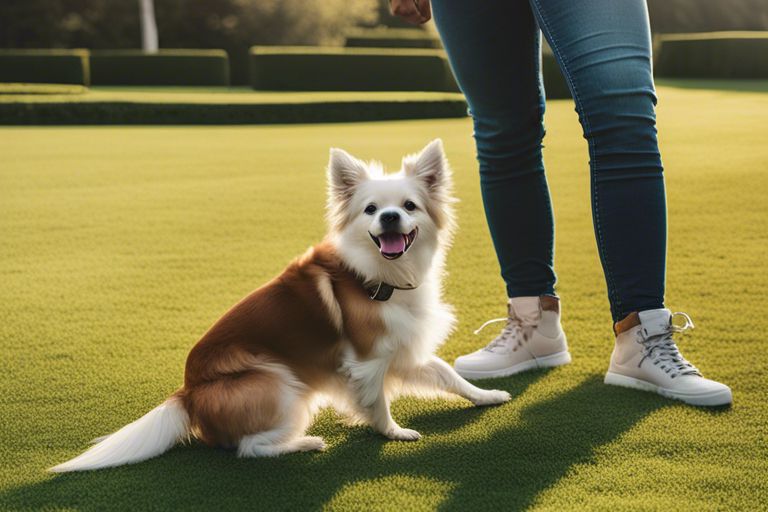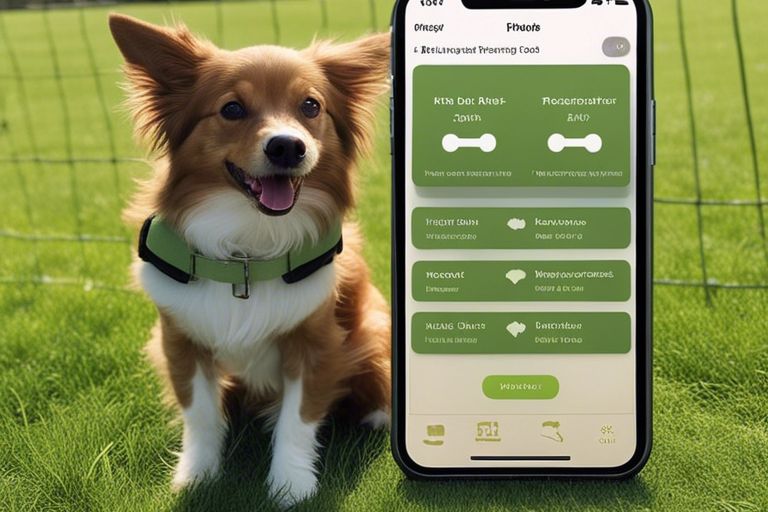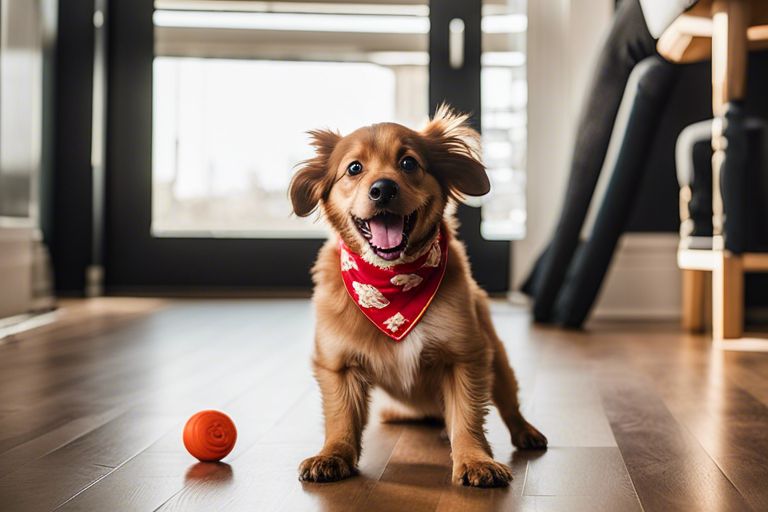Reinforcing recall training in small dogs can be challenging due to their size and stubborn behavior. As a professional dog trainer with years of experience, I have encountered various methods for achieving success in small dog recall training. In this blog post, I will share with you the most effective and reliable techniques that will help you teach your small dog to come when called. Whether you have a Chihuahua, Dachshund, or Pomeranian, these methods can be customized to suit your specific needs and help your furry friend master the art of recall. Stay tuned for expert tips and pointers that will help you achieve a strong recall with your small dog.
Key Takeaways:
- Consistency is key: Utilize regular and consistent training sessions to reinforce recall commands and behavior in small dogs. Consistency will help small dogs understand the behavior you expect from them when called.
- Positive reinforcement: Utilize positive reinforcement techniques, such as treats and praise, to encourage small dogs to come when called. This will help create a positive association with recall commands and make them more likely to respond positively.
- Use a long line: When initially training a small dog with recall commands, use a long line to give them the freedom to roam while also maintaining control. This will allow for safe and effective training, as well as giving your small dog the freedom to explore while learning to come when called.
Understanding Your Small Dog
If you’re a small dog owner, you know that they often have distinct personalities and behaviors compared to larger breeds. Understanding your small dog’s nature is crucial when it comes to recall training. Small dogs are often seen as stubborn or independent, but in reality, they can be just as intelligent and trainable as any other breed. By taking the time to understand their unique characteristics, you can tailor your recall training to better suit their needs and behaviors.
Breed-Specific Recall Challenges
Small dog breeds, such as Chihuahuas, Pomeranians, and Dachshunds, often present unique challenges when it comes to recall training. Their small size and often strong-willed nature can make them more prone to distractions and less likely to come when called. Additionally, some small breeds have a higher prey drive, which can lead them to chase after squirrels or other small animals, making recall even more challenging. Understanding these breed-specific challenges is crucial in developing an effective recall training plan for your small dog.
The Role of a Dog’s Temperament in Training Success
The temperament of a small dog plays a significant role in their recall training success. Some small breeds may be more fearful or anxious, while others may be highly confident and outgoing. Understanding your dog’s temperament is essential in tailoring your training approach. For example, a fearful dog may require a more gentle and patient training method, while a confident dog may respond well to positive reinforcement and play-based training. By recognizing and working with your small dog’s temperament, you can set them up for success in recall training.
Fundamentals of Recall Training
The foundation of successful recall training for small dogs lies in establishing a strong bond with your pet, understanding their behavior, and using positive reinforcement techniques to encourage desired behavior. Recall training is crucial for small dogs, as they may be more easily distracted or inclined to wander off. By focusing on the fundamentals of recall training, you can set a strong groundwork for effective and reliable recall behaviors in your small dog.
Establishing the Basics
The first step in recall training is to establish a strong foundation of basic obedience commands such as sit, stay, and come. Consistency and patience are key as you work with your small dog to master these commands. Practice these basic commands in a variety of environments and gradually increase the level of distractions to build up your dog’s ability to focus and respond to your cues. It’s important to always use positive reinforcement and reward your dog for responding correctly to these basic commands.
Positive Reinforcement Strategies
When it comes to recall training, positive reinforcement techniques are highly effective for small dogs. Utilize high-value treats, toys, and praise to reward your dog for coming to you when called. By making the experience positive and rewarding for your small dog, they will be more inclined to respond reliably to your recall cues. Remember to keep training sessions short, fun, and engaging to maintain your dog’s interest and motivation.
Advanced Recall Training Techniques
Now that you and your small dog have mastered the basics of recall training, it’s time to take it to the next level. Here are some advanced techniques to further improve your dog’s recall skills:
- Seek advice and tips from experienced trainers and dog owners on forums such as Those who have trained great recall – how? : r/Dogtraining
- Utilize long lines and training leads to allow your dog more freedom while still maintaining control.
- Practice recall in various environments with increasing levels of distraction.
- Incorporate games and rewards to make recall training enjoyable for your dog.
Distraction Training
When it comes to advanced recall training, distraction training is crucial. Start by practicing recall in a quiet environment and gradually introduce distractions such as other dogs, people, or enticing smells. This will teach your dog to focus on you and respond to your recall command even in challenging situations.
Long-Distance Recall Mastery
To truly master long-distance recall, consistency and patience are key. Start by practicing recall over longer distances in a controlled environment, gradually increasing the distance as your dog becomes more proficient. Use high-value rewards and praise to reinforce a strong recall response, even from a distance.
Common Mistakes and Solutions
After years of experience in small dog recall training, I have noticed several common mistakes that dog owners make when trying to train their pups. One of the most common errors is inconsistency – if you only call your dog when you want to leash them up to go home from the park, they will quickly learn to ignore you. Instead, make sure to call your dog randomly throughout playtime so that they learn to respond no matter the circumstances. Another mistake is using a negative tone when calling your dog. Your tone of voice is crucial in recall training – always use a positive, enthusiastic tone to encourage your dog to come back to you. Lastly, not providing enough positive reinforcement can also hinder progress. Your dog needs to learn that coming to you when called results in a positive outcome, whether it’s a treat, a toy, or praise.
Troubleshooting Poor Recall Response
If your small dog is still not responding well to recall training, there are a few steps you can take to troubleshoot the issue. First, analyze your environment – if there are too many distractions, your dog may not be able to focus on your command. Try practicing recall in a quiet, familiar environment before gradually increasing the distractions. Additionally, assess the length of time between the recall command and your dog’s response. If it’s too long, your dog may not understand the connection between the two. Work on decreasing the response time by practicing recall frequently with shorter distances.
Adjusting Techniques for Individual Needs
Every small dog is unique, and what works for one may not work for another. If your dog is not responding well to traditional recall training methods, it may be time to adjust your approach. Consider your dog’s personality and energy level – high-energy dogs may require more frequent recall practice, while shy or anxious dogs may need a gentler, more patient approach. Tailor your training to suit your dog’s individual needs, and don’t be afraid to seek professional help if necessary. Remember, patience and consistency are key in recall training, and each dog will progress at their own pace.
Maintaining Recall Reliability
Unlike other commands, maintaining recall reliability with a small dog requires continuous effort and consistency. Even if your dog has shown improvement, it is essential to continue practicing and reinforcing the recall command to ensure that it remains reliable in all situations.
Consistency and Routine in Training
Consistency is key to maintaining recall reliability. Your small dog needs to understand that the recall command applies in all situations, regardless of distractions or distance. Consistent training sessions, using positive reinforcement and rewards, will help reinforce the recall behavior. Incorporating recall practice into your daily routine, such as during walks or playtime, will also contribute to its reliability.
Graduating to Off-Leash Reliability
Graduating to off-leash reliability is a significant milestone in small dog recall training. This step requires a high level of trust and consistency in training. It is crucial to gradually introduce off-leash practice in a safe and controlled environment, such as a fenced yard or a secure dog park. Consistent practice and positive reinforcement are essential for your small dog to understand and obey the recall command without the safety net of a leash.

Conclusion
To wrap up, the best methods for small dog recall training include using positive reinforcement, regular training sessions, and consistent practice. By using high-value treats, making the training sessions fun and engaging, and being patient with your dog, you can effectively teach them to come when called. Additionally, using a long line during training can help to maintain control and keep your small dog safe while practicing recall. Remember to always remain patient and consistent with your training approach, and you’ll soon see improvement in your small dog’s recall skills.
Small Dog Recall Training FAQ
Q: What are the best methods for small dog recall training?
A: The best methods for small dog recall training include using high-value treats, practicing in a controlled environment, and using positive reinforcement techniques.
Q: How can I use high-value treats effectively in small dog recall training?
A: High-value treats, such as small pieces of cheese or cooked chicken, should be used sparingly and only for recall training. This will help to create a strong association between coming when called and receiving a delicious reward.
Q: How can I maintain consistency in small dog recall training?
A: Consistency is key in small dog recall training. Always use the same recall command, such as “come”, and make sure that everyone in the household or involved in the training is using the same command and reinforcement techniques. Additionally, practice recall training in various environments to ensure your small dog’s response is consistent in different situations.



